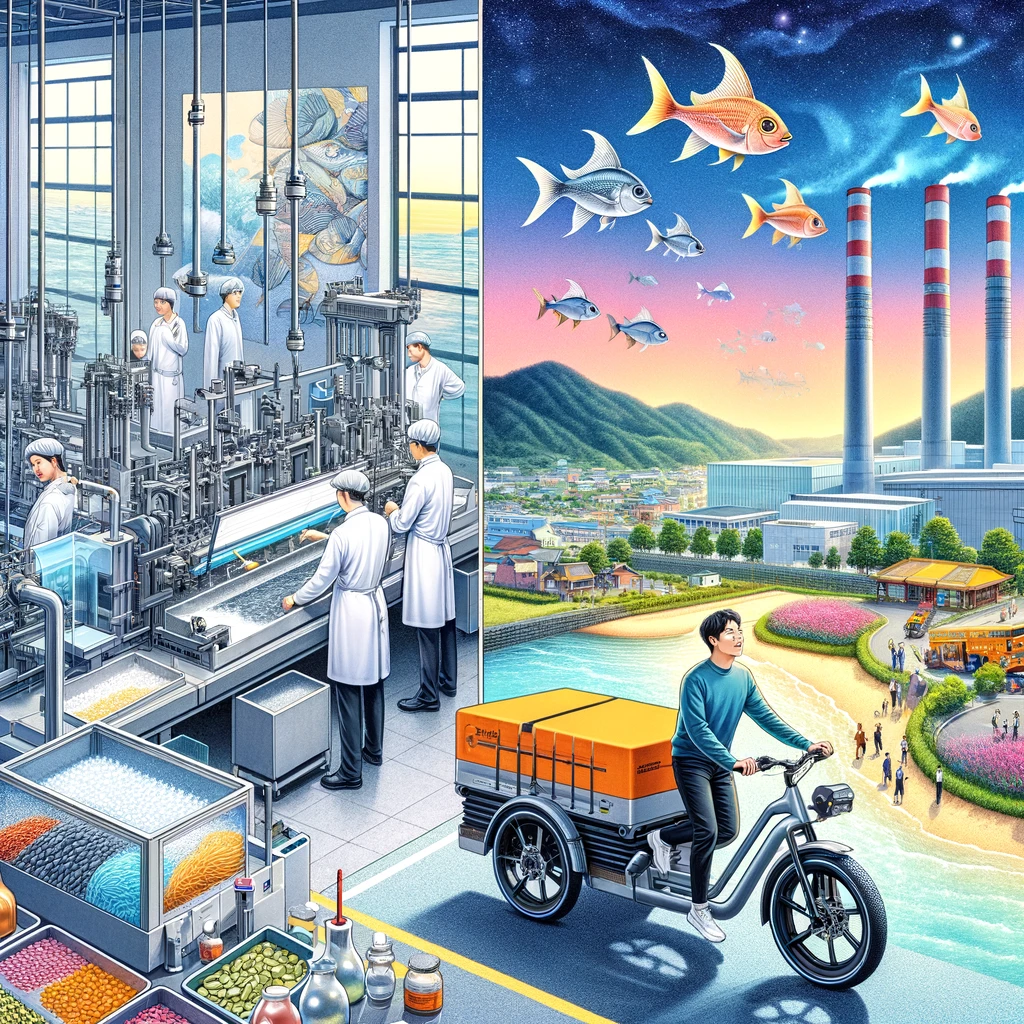Introduction to South Korea Gyeongnam’s Regulatory-Free Zones
South Korea continues to push the boundaries of innovation and economic development through the establishment of regulatory-free zones. A prime example is South Gyeongsang Province (Gyeongnam), which has recently been selected for two groundbreaking projects: the “Marine Byproduct Recycling Special Zone” and the “Hydrogen Mobility Living Lab.”
Transforming Marine Byproducts into High-Value Products
Project Overview:
The “Marine Byproduct Recycling Special Zone” aims to transform marine byproducts, such as fish shells, into high-value products like cosmetics. This project, the first of its kind in South Korea, is set to establish a standardized model for recycling marine byproducts, an initiative led by local processing giants such as Dongwon F&B and Sajo Industries.
Economic and Environmental Impact:
By converting previously discarded materials into valuable goods, Gyeongnam is not only addressing waste management issues but also enhancing its economic prowess. The initiative is expected to generate an economic impact of approximately KRW 346.3 billion annually, creating over 2,700 jobs.
Promoting Hydrogen Mobility for Everyday Life
Project Scope:
The “Hydrogen Mobility Living Lab” focuses on the development and commercialization of small-scale hydrogen mobility solutions, such as hydrogen-powered electric cargo bikes. This zone aims to accelerate the adoption of hydrogen technologies in daily transportation, beginning with the safety standard revisions and real-world application demonstrations.
Anticipated Benefits:
The project is anticipated to bring about significant economic benefits, with an expected annual impact of KRW 100.5 billion and the creation of 617 jobs. By fostering an ecosystem around hydrogen mobility, Gyeongnam is positioning itself at the forefront of the green mobility revolution.
Strategic Importance and Future Prospects

Policy and Industry Synergy:
Under the leadership of the Prime Minister’s “Regulatory Freedom Special Committee,” these projects reflect a strategic move to alleviate existing regulations that hinder innovation. By granting special regulatory exceptions, these zones enable businesses to pioneer new technologies and business models without the usual bureaucratic constraints.
Future Directions:
Looking ahead, Gyeongnam plans to expand its focus to include other hydrogen-based products, potentially setting a new standard for the hydrogen economy globally. This forward-thinking approach not only caters to immediate economic and environmental needs but also aligns with long-term sustainability goals.
Conclusion: A Model for Innovation and Sustainability
Gyeongnam’s regulatory-free zones showcase South Korea’s commitment to fostering innovation that leads to sustainable economic growth and environmental conservation. These projects serve as a model for other regions and countries, illustrating how strategic deregulation can spur industrial advancement while addressing pressing global challenges such as waste management and clean energy solutions.
Hi, I’m [jeybee]. As a long-time resident of Seoul, I’m passionate about uncovering the authentic, everyday magic of Korea. This blog is my way of sharing my favorite spots, tips, and cultural insights with you, beyond the usual tourist traps.

